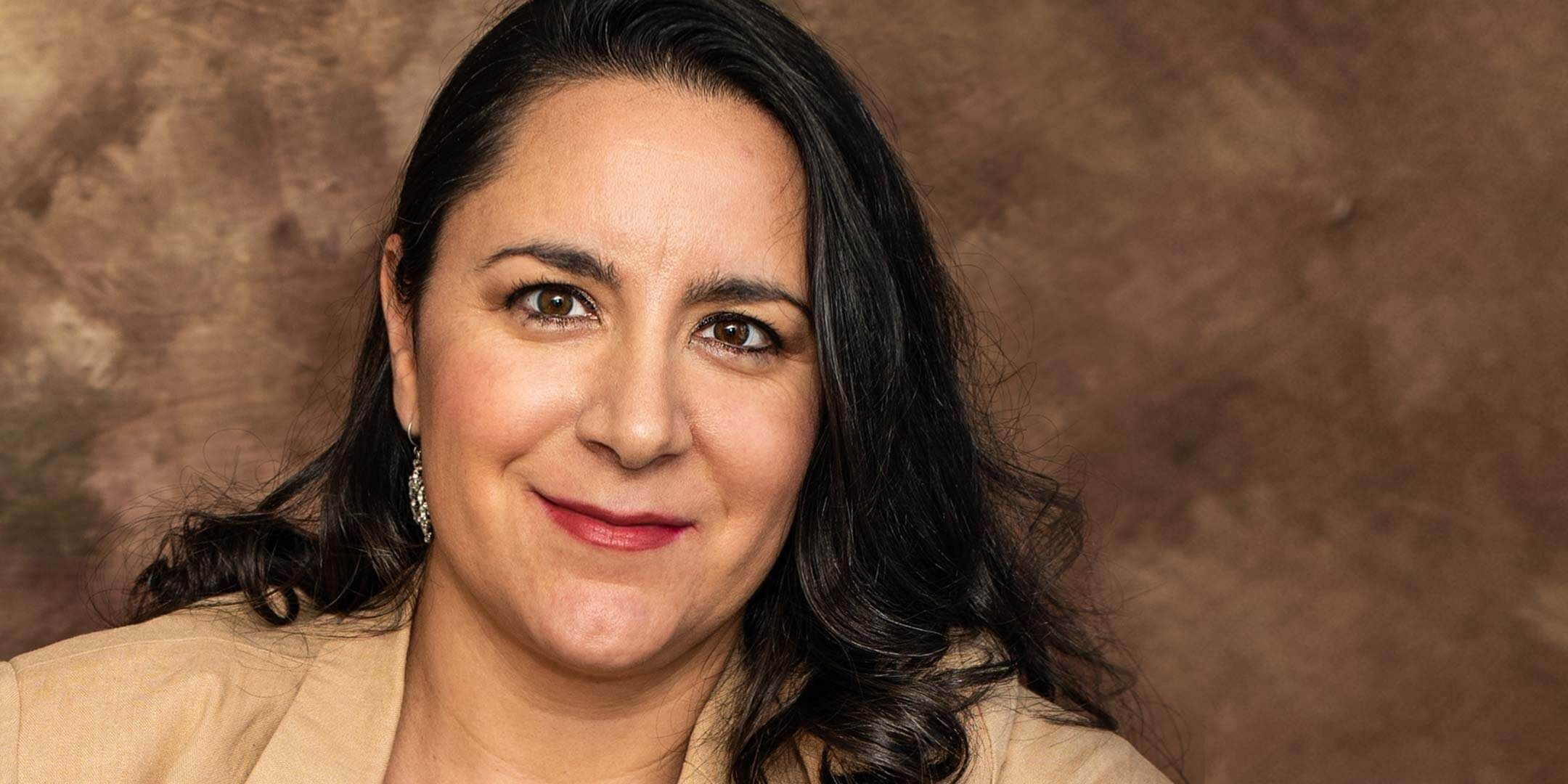Eugenia Podestá is an apple that didn’t fall far from the tree. The tree in this case is her father, Guido Podestá, who left Peru with his young family to pursue Latin American studies at the University of Minnesota. In 1987, he began teaching at the University of Wisconsin–Madison; he eventually served as the chair of the department of Spanish and Portuguese, and he announced his retirement as vice provost and dean of the UW’s International Division in July 2022. Eugenia explains that her father’s work and an interest in her heritage led her to pursue the same area of study. “It was absolutely a result of family and what I’d been exposed to. My brother and I were both born in Peru,” she says. “We came here very young, and [I] was always passionate about being connected.”
While Podestá shares her family’s academic interests, she wasn’t afraid to branch out into other fields, including law, advocacy, and entrepreneurship. For the past 15 years, she has worked for Vital Voices, a global nonprofit dedicated to lifting women in leadership positions. As vice president of leadership and social impact, Podestá oversees programs that support women-owned small- and medium-sized businesses. In 2015, she cofounded Synergy Coworking, a collaborative office space in Madison that serves as a network of resources and support for professionals and small-business owners. In 2022, Podestá received the Greater Madison Chamber of Commerce’s Ground Floor Award for Small Business Leadership for her support of women and people of color in entrepreneurship.
Learn more from Podestá about how she became interested in business and her efforts to connect Madison’s community of entrepreneurs. Then get some of her business tips.
Why did you decide to pursue law in addition to Latin American studies?
After undergrad, I spent some time in Latin America, and then I ended up coming back, and I taught Spanish at the UW and Edgewood. I had been working for United Way. I was working as a translator and interpreter. I was doing a little bit of everything, but legal issues kept coming up on the surface. That’s what pushed me to apply and pursue my law degree, and during that time, I also learned about the dual degree program with Latin American studies. The study aboard program was a great opportunity for me to do something I had always wanted to do, which was to go and spend time in Peru as an adult. It’s what really opened my eyes to law and development and international development. I ended up staying there for a year and doing a lot of coursework in those fields.
How did you develop an interest in entrepreneurship and business?
[In Peru, I began to] understand the role of corruption in society — understanding the role of rule of law in societies that have had a challenging past, whether through violence, civil wars, [or] other economic turmoil. You have a pretty book of rules that you expect society to abide by, but if there’s a lack of equality and equity and access to resources, it’s not surprising that people will find ways of surviving, which means that they might end up not following those rules.
I was really fascinated by that, especially when it came to women and women’s movements. I had worked in tourism for a while and got exposed to some women’s groups that were basically creating tourism circuits as a way to generate economic opportunity. That’s really what sparked my change in career, and I left Peru knowing that I wanted to do work in development with women creating opportunity.
Why are women and people of color a major focus of your advocacy? What are the barriers they face when starting and growing a business?
[The barriers] all boil down to access. There are varying degrees of access, depending on many factors that we know, including ethnic, racial, geographic, whether you’re in rural areas versus urban, language barriers, and other things that will impact your ability to access what you need to move forward and thrive economically. What I champion is removing barriers to access. There are so many of them, so it can be overwhelming, but you have to find a way to center the experiences of those [whom] you’re working with to figure out, “Okay, what is an ecosystem-wide approach, one that you can then tap into other networks, partners, and others to help you help them overcome some of those barriers?”
Would you say that Synergy Coworking establishes that ecosystem of support and access?
Yep, 100 percent. I moved back to Madison in 2012, and even while I lived in DC, I had an idea that I wanted to do more here. I had been involved in the Latinx community and communities of color growing up. That is where I thrive. That’s where I have a lot of my social network. But I basically move around in different environments and circles, which is a huge benefit, because that has allowed me to break down barriers of access that I had as an immigrant. I was always passionate about creating opportunities and sharing knowledge. [It’s about] being really intentional about addressing directly the things that are holding people back from access.
How does Synergy Coworking support entrepreneurship in the Madison area?
On the face, it’s a core space. It has mailboxes, meeting room access, that sort of thing. But a lot of what we do, you will never see on the website. It’s really about taking the time to develop and invest in the relationships of the people who are connected to who we are and what we do. I’d say on one hand, it’s problem-solving, but on the other hand, it’s really about envisioning what’s possible and helping people figure out their own ways of pursuing their success as they define it.










